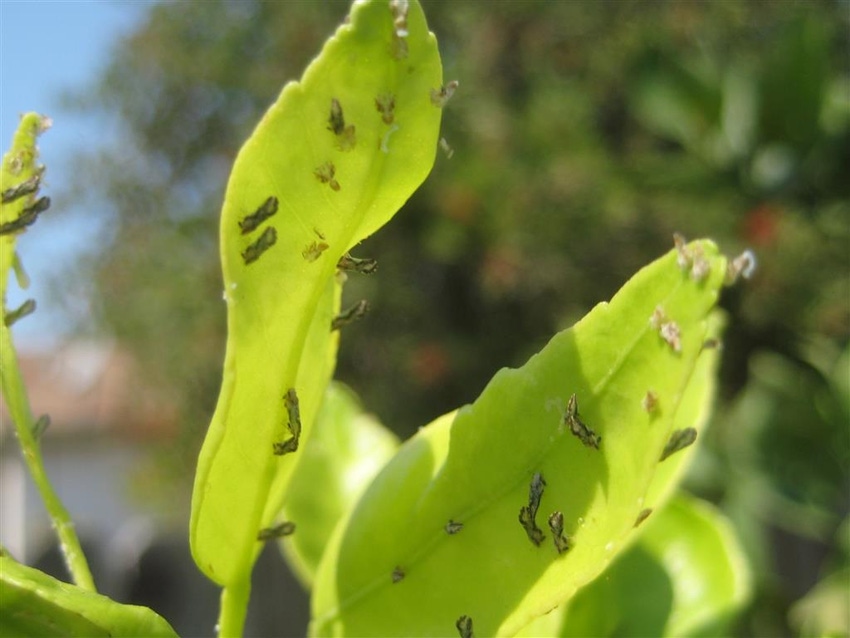April 5, 2017

Sometimes even the best of government intentions can be “clear as mud.”
Earlier this year, the California Department of Food and Agriculture (CDFA) rolled out new quarantine regulations related to citrus. As with other citrus programs at the state level, the goal is to slow the spread of the Asian citrus psyllid and try to hold Huanglongbing (citrus greening disease) at bay until a cure is found. So far, the only incidents of HLB found in the state have been in residential trees east of downtown Los Angeles, but that number has since grown to 46 infected trees.
All those trees have been removed by the state.
For all the best intentions of regulators and the apparent buy-in by commercial citrus producers in California, the problem largely continues to be with homeowners who ignore or are unaware of quarantine regulations when it comes to plant materials. This doesn’t absolve some growers or shippers who might try to skirt the rules or opt against effective best management practices.
A northern California grower contacted Western Farm Press recently to see if we could help clarify the issue of compliance orders as required by CDFA.
In short, the grower was initially unclear about new compliance agreements CDFA wants signed by growers, shippers and packers. While it appears the grower found clarity by making a few phone calls after reading information published online by the Citrus Pest & Disease Prevention Program, perhaps there are other growers curious about their responsibilities and requirements under the new CDFA quarantine rules.
The CPDPP website has this information. Local agricultural commissioners in California should also have info, or at the very least be able to point growers in the right direction.
Growers were given until Feb. 28 to sign the new agreements and learn the rules that require all bulk loads of citrus moving in the state to be “safeguarded.” That’s a government term to mean “tarped” or shipped in enclosed vehicles or containers. The stated point is to prevent from spreading the ACP around the state though that has already happened.
For all the California industry’s best efforts to control the psyllid and contain the disease in California, HLB continues to be found in urban neighborhoods east of L.A. While it hasn’t yet been found in commercial groves, that is arguably just a matter of time.
To date, at least 46 non-commercial citrus trees in the San Gabriel Valley (San Gabriel and Hacienda Heights) have tested positive for the disease and been removed by the state.
According to Joshua Huntsinger, agricultural commissioner for Placer County (northern California), the reason an ACP quarantine now exists around the city of Lincoln located northeast of Sacramento and just down the hill from about 200 acres of commercial mandarin groves is because someone moved from the Los Angeles area to Placer County last year, bringing with them a potted citrus tree that was “full of psyllids,” according to Huntsinger.
Until the state can control the unregulated movement of citrus plants and fruit around California in cars, pickups and moving vans, the fight against ACP and the disease it carries cannot be won. All of the best management practices, compliance agreements and coordinated spray programs in the world won’t stop what is largely being spread by private citizens.
At best, the only hope for a multi-billion dollar commercial citrus industry that prides itself on fresh citrus quality will be for researchers to find a quick cure for a disease that continues to decimate other citrus growing regions around the world, including here in the United States.
You May Also Like




